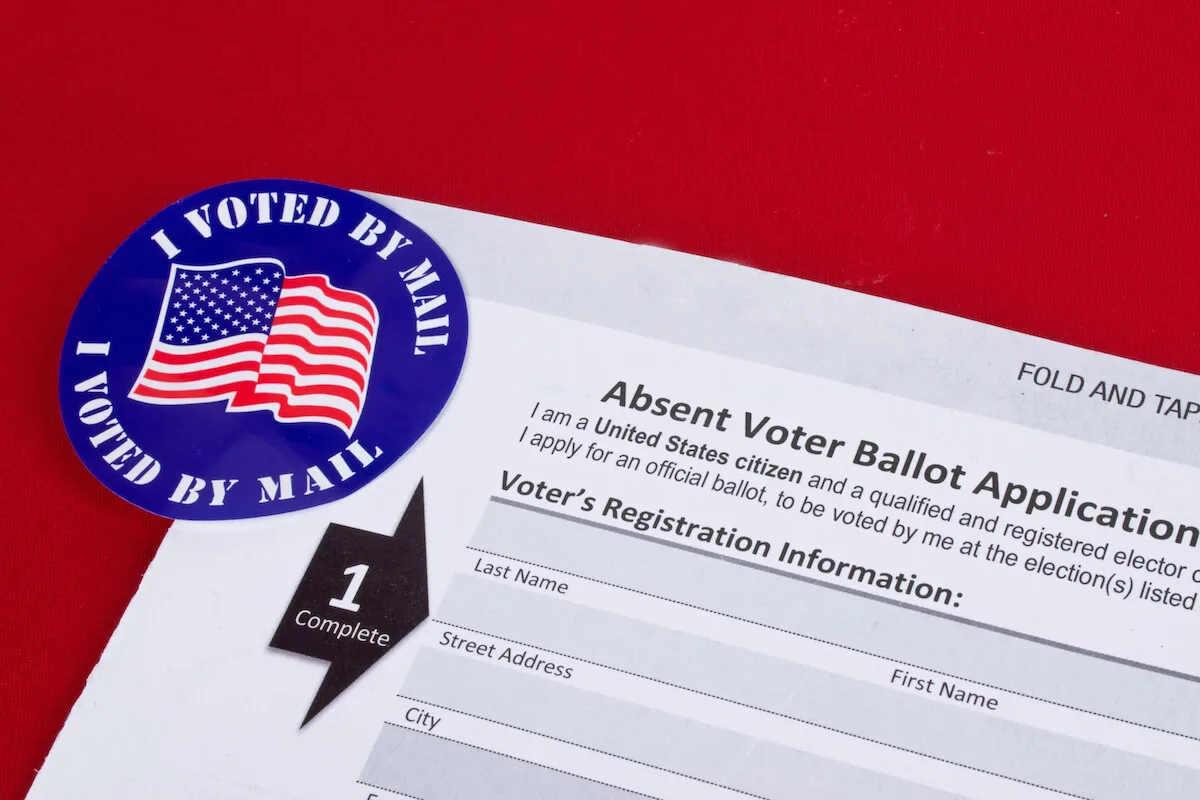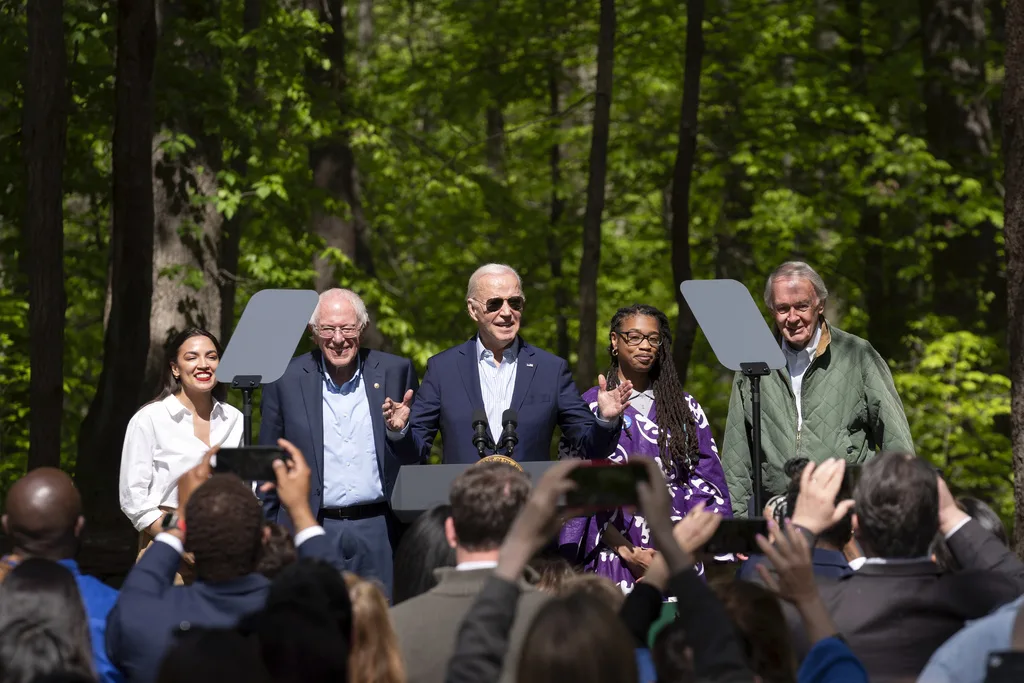
#image_title
#image_title
Arguments heard on extending absentee ballot deadlines, but an April 7 postponement is unlikely
U.S. District Court Judge William Conley sharply criticized Gov. Tony Evers and the Republican-controlled state Legislature Wednesday for their failure to “step up” and conduct a safe election during the coronavirus pandemic.
During a federal court hearing to consider three lawsuits seeking to delay or alter the April 7 election amid concerns of COVID-19, Conley questioned whether he has the power to postpone the presidential primary. He said Evers and Republican leadership, have the primary responsibility to come up with a better way to conduct the election.
Allowing Tuesday’s election is “a really bad public policy idea and they should stop it for health reasons,” Conley said of state government leaders.
Democratic Gov. Tony Evers and Republican legislative leaders, Sen. Scott Fitzgerald, R-Juneau, and Rep. Robin Vos, R-Rochester, have said the election should occur as scheduled and local clerks should do the best they can amid challenging circumstances. In recent weeks they have urged people to vote by mail instead of heading to polling places on election day.
But holding the election at a time when COVID-19 cases are growing rapidly in Wisconsin endangers state residents, Conley said. As of Wednesday, 1,550 people had been confirmed with the virus and more than two dozen have died from it.
“The state of Wisconsin is ignoring that data and endangering its public” by holding the election, he said.
Evers issued a statement Wednesday evening defending his actions regarding the election. He said he previously proposed legislation to make voting easier and more accessible during the public health emergency. He also called on the Legislature to figure out how to best proceed with the election.
“If I could have changed the election on my own, I would have, but I can’t without violating state law,” Evers said. “I’ve asked the Legislature to do its part to ensure a fair and safe election and I hope we can get some clarity as soon as possible.”
Conley said he would consider changes to the election process, including possibly extending the time absentee ballots can be returned and still counted in vote totals. The judge said he might not issue a decision until closer to Tuesday’s election date.
Currently, absentee ballots are due to polling places by 8 p.m. on election days so those votes can be counted along with the in-person results. Thursday is the last day people can request absentee ballots.
Conley made his remarks amid a severe shortage of poll workers concerned about contracting COVID-19, a situation that has prompted a record number of absentee votes across Wisconsin and has forced some communities to reduce voting sites. More than one million absentee ballots have been sent out for the election.
Several elections clerks acknowledged some people who have requested absentee ballots are waiting more than a week to receive them. They said they fear they may not receive a significant number of absentee votes by the current deadline because of slower mail service during the health emergency.
Terri Kalan, city clerk in Superior, said absentee ballots seem to be taking longer than normal to get to and from recipients. Her office is working extra hours and bringing in additional workers to try to keep up with an overflow of absentee ballots, but without the extension some voters likely would not have time to return their ballots to election officials in time.
“If (the absentee ballot deadline) isn’t extended, I think there are people out there whose vote isn’t going to count because we won’t get their ballot back in time,” she said.
Like other clerks across the state, Kalan’s office has been overwhelmed by absentee ballot requests. In a typical spring election they process 500; so far this year that figure is 3,800, and the current backlog is at least 500, she said.
“We’re just slammed. We can’t keep up,” Kalan said.
Superior, Eau Claire and some other municipalities have instituted drive-up voting in which voters drive to voting sites, are handed absentee ballots and return them on site. Doing so is one way to alleviate the absentee ballot mail backlog, Kallan said.
Concerns about COVID-19 also have caused significant shortages of poll workers at election sites, clerks across Wisconsin have said. In Eau Claire, about half of the normal 400 poll workers for a spring election have signed up to work this year, city clerk Carrie Riepel said. The city will fill that gap, Riepel said, with city staff.
Fewer workers could lead to long lines of people waiting to vote at a time when they are supposed to refrain from having close contact to prevent spreading the virus. Some have called to delay the election, saying it will endanger people by exposing them to COVID-19 at a time when public gatherings have been prohibited by Evers.
Meagan Wolfe, administrator of the Wisconsin Elections Commission, told Conley Wednesday that 111 election sites currently lack enough poll workers to properly conduct an election Tuesday. Those overseeing polling sites are being trained to limit the number of voters in a space at any one time, she said, and those waiting to vote will be advised to practice social distancing.
The election lawsuits hearing comes one day after the Wisconsin Elections Commission decided against making a recommendation to delay the election to account for extraordinary circumstances created by the coronavirus pandemic. Commissioners mostly agreed the election will be highly flawed but could not agree how it should be delayed.
“This election is probably going to go down as one of the worst elections in Wisconsin history,” Elections Commission member Julie Glancey said
The mayors of Green Bay, Milwaukee, and Racine also have said the election should be delayed and advocated for more time to count absentee ballots, citing poll worker shortages and COVID-19 concerns.
Conley weighed three legal challenges to holding the election on April 7. One, brought by Souls to the Polls and other organizations seeking to turn out the vote, sought to postpone the election.
The groups behind that effort want ballots already cast to be counted. They also want voters to be able to continue to mail in their votes in upcoming weeks and in-person voting to happen at a later date when it can be conducted safely.
The Democratic National Committee has asked to expand absentee voting so ballots that arrive in the mail after election day are counted. The third challenge was brought by the League of Women Voters of Wisconsin and asks the judge to allow people to cast absentee ballots without witnesses having to sign a certificate for them.
In addition to local choices for city, county and school board races, voters in Tuesday’s election will make decisions about the presidential primary, a state Supreme Court race and a crime victims rights amendment to the state constitution.
Politics

New Biden rule protects privacy of women seeking abortions
Under the new rules, state officials and law enforcement cannot obtain medical records related to lawful reproductive health care with the goal of...

Biden marks Earth Day by announcing $7 billion in solar grants
The Biden administration on Monday announced the recipients of its Solar For All Program, a $7 billion climate program that aims to lower energy...
Local News

Stop and smell these native Wisconsin flowers this Earth Day
Spring has sprung — and here in Wisconsin, the signs are everywhere! From warmer weather and longer days to birds returning to your backyard trees....

Your guide to the 2024 Blue Ox Music Festival in Eau Claire
Eau Claire and art go hand in hand. The city is home to a multitude of sculptures, murals, and music events — including several annual showcases,...



